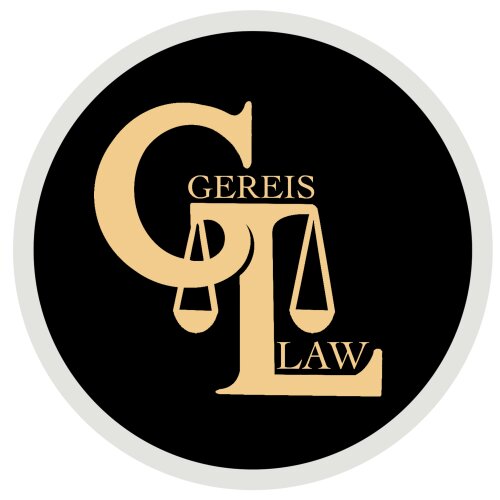Best Commercial Litigation Lawyers in Vermont
Share your needs with us, get contacted by law firms.
Free. Takes 2 min.
Or refine your search by selecting a city:
List of the best lawyers in Vermont, United States
About Commercial Litigation Law in Vermont, United States
Commercial litigation refers to legal disputes related to business and commercial transactions. In Vermont, these cases often involve disagreements between companies, organizations, or individuals regarding contracts, partnerships, fiduciary duties, real estate, intellectual property, business torts, and more. The Vermont courts that handle commercial litigation include both state and federal courts, depending on the specifics of the case, the amount in controversy, and jurisdictional issues. The main goal of commercial litigation is to resolve business disputes efficiently while protecting the rights and interests of all parties involved.
Why You May Need a Lawyer
Commercial litigation can be complex and involves navigating both legal and business considerations. You may need a lawyer for situations such as:
- Breach of contract claims
- Partnership or shareholder disputes
- Disputes involving payment, services, or deliveries
- Employment-related issues, including restrictive covenants and non-compete agreements
- Debt collection actions
- Allegations of fraud or misrepresentation
- Intellectual property disputes (trademarks, copyrights, patents)
- Real estate transaction or lease disagreements
- Business dissolutions or mergers with legal disagreements
Without experienced legal representation, you risk not only losing money but also facing ongoing operational uncertainty and reputational harm. A qualified attorney can help assess your case, advise on the strength of your position, negotiate settlements, and represent you in court if necessary.
Local Laws Overview
Vermont’s commercial litigation is shaped both by its own state statutes and by federal law. Key aspects include:
- Contract Law: Vermont follows the Uniform Commercial Code (UCC) for commercial transactions, covering sales of goods and secured transactions. The state also recognizes both written and oral contracts but they can have different enforcement requirements.
- Business Entities: Disputes may involve various entities, from LLCs to corporations to partnerships. Vermont statute governs how these entities are formed, managed, and dissolved.
- Civil Court Procedures: Vermont’s Rules of Civil Procedure stipulate how lawsuits are filed, served, and litigated. Commercial cases may be filed in the Vermont Superior Court civil division or, for federal claims, in the U.S. District Court for the District of Vermont.
- Alternative Dispute Resolution: Vermont courts often encourage mediation, arbitration, or settlement before going to trial - and may require participation in such processes depending on the matter.
- Consumer Protection: Vermont’s Consumer Protection Act can be relevant if a dispute involves alleged unfair or deceptive trade practices.
Frequently Asked Questions
What is commercial litigation?
Commercial litigation involves legal disputes arising from business activities or commercial relationships, such as breach of contract, business torts, or partnership disputes.
How do I know if I have a valid commercial litigation case in Vermont?
If you or your business has suffered a financial or legal injury due to another party’s actions or breach of contract, you may have grounds for a case. Consult an attorney to review your situation.
What types of damages can be recovered in commercial litigation?
Damages may include compensatory damages for financial losses, consequential damages, punitive damages in cases of egregious conduct, and sometimes specific performance.
How long does a commercial litigation case take in Vermont?
The length varies by complexity, court schedule, and whether the case settles or goes to trial. Simple cases may resolve in months while more complex ones can take a year or longer.
Can commercial litigation matters be settled without going to court?
Yes, many disputes are resolved through negotiation, mediation, or arbitration, saving time and costs associated with trial.
What should I bring to an initial consultation with a Vermont commercial litigation lawyer?
Bring all relevant documents, such as contracts, correspondence, invoices, and any prior legal filings related to the dispute.
Are attorney's fees recoverable in Vermont commercial litigation?
Attorney's fees are recoverable only if specified in a contract or allowed by statute. Most parties pay their own fees unless an exception applies.
What courts handle commercial litigation in Vermont?
Cases are typically filed in Vermont Superior Court, civil division. Some cases involving federal law or large sums may be heard in federal court.
Is mediation or arbitration required in Vermont commercial cases?
While courts commonly encourage alternative dispute resolution, it is only required in some cases, especially if provided by contract or court order.
What risks do I face without a lawyer handling my commercial dispute?
You risk missing legal deadlines, failing to adhere to court procedures, and weakening your position, which could result in losing your case or important rights.
Additional Resources
- Vermont Bar Association - helpful for finding qualified commercial litigation attorneys
- Vermont Judiciary - official site for understanding court processes, rules, and local courthouses
- Vermont Secretary of State - business entity and registration information
- Office of the Vermont Attorney General - information for consumers and businesses on unfair business practices
- Legal Services Vermont - for low-income individuals seeking legal guidance
Next Steps
If you are facing a commercial dispute in Vermont or believe you may be at risk, consider the following steps:
- Gather all relevant business records, contracts, and written communications
- Document your concerns and attempt to understand the opposing party’s perspective
- Consult with a qualified Vermont commercial litigation attorney to discuss your rights, options, and strategies
- Consider alternative dispute resolution methods if litigation seems likely
- Ensure you act quickly, as there are statutes of limitations on many types of commercial claims
Taking action early can preserve your rights and enhance your ability to achieve a favorable outcome, whether through settlement or in court.
Lawzana helps you find the best lawyers and law firms in Vermont through a curated and pre-screened list of qualified legal professionals. Our platform offers rankings and detailed profiles of attorneys and law firms, allowing you to compare based on practice areas, including Commercial Litigation, experience, and client feedback.
Each profile includes a description of the firm's areas of practice, client reviews, team members and partners, year of establishment, spoken languages, office locations, contact information, social media presence, and any published articles or resources. Most firms on our platform speak English and are experienced in both local and international legal matters.
Get a quote from top-rated law firms in Vermont, United States — quickly, securely, and without unnecessary hassle.
Disclaimer:
The information provided on this page is for general informational purposes only and does not constitute legal advice. While we strive to ensure the accuracy and relevance of the content, legal information may change over time, and interpretations of the law can vary. You should always consult with a qualified legal professional for advice specific to your situation.
We disclaim all liability for actions taken or not taken based on the content of this page. If you believe any information is incorrect or outdated, please contact us, and we will review and update it where appropriate.
Browse commercial litigation law firms by city in Vermont
Refine your search by selecting a city.














